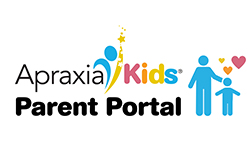There is an antidote to feelings of helplessness, hopelessness and despair.
As you come full circle, having experienced the denial, anger, guilt, and sadness that are the inevitable reactions of the loving parent of a child who faces challenges, you will find that your emotions can be freed to use in a positive search for information and for solutions to the problems you face. You must transform your emotions into energy-the battle to obtain a good education for your child will be long and arduous. You need to conserve your strength and focus on what is important-obtaining an appropriate education for your child.
Becoming an advocate means becoming an expert. In the course of your journey, you need to learn all that you can about your child’s particular disabling condition and how this condition can be remediated.
You must learn about evaluations-psychological, educational, neuropsychological, psychiatric neurological-and what these evaluations measure. Depending upon your child’s unique problems, you may also need to learn about speech-language, physical therapy, and occupational therapy evaluations too.
In your advocacy journey, you will need two things-accurate information and support. This journey is more difficult if undertaken alone.
It is essential that you join the major disabilities groups, including the Learning Disabilities Association of America (LDAA), The International (Orton) Dyslexia Society (IDS), and Children and Adults with Attention Deficit Disorder (ChADD). If your child’s disabling condition is in another area (i.e. autism, mental retardation), then you also need to join the advocacy organization that represents this group. Parent memberships in the three organizations listed above will cost about $100.00 annually. Many parents ask why we require them to take this action (and incur this expense). The answer is a simple one.
Each of these three groups represents a rich source of information and support that is invaluable to parents, regardless of the child’s handicapping condition. Although your child may not have been diagnosed with dyslexia, the International Orton Dyslexia Society is a pioneer in areas related to neurological research and educational methodology. At least seventy-five percent of its members are professionals involved in the field of remediating language/ learning disorders. The information that you will obtain from IDS will be enormously helpful if your child has any type of learning or attention deficit problem.
The Learning Disabilities Association of America is a national organization devoted to defining and finding solutions for the broad spectrum of learning problems. And ChADD, a relative newcomer in the field, is the leading organization serving people with ADD/ADHD. Each of these groups publishes newsletters with information that will put you on the “cutting edge” of what is known in the field.
Hours before an Eligibility meeting, a young mother wrote us the following note which we received by e-mail:
“I am not nervous anymore. I am going into this hearing with a two-foot tall stack of reports and notes we have kept over the years.
I have copies of the law and regulations that are highlighted and dog-eared. We have your articles-and a very firm resolve that we will leave no stone unturned in seeing that Joy gets the free and appropriate education necessary for her to become a happy, competent adult.
We are not going to bang on the table. We are not going to threaten or yell. We are going to calmly listen to what they have to offer Joy, and tell them that we will do whatever it takes to see that this child receives the education that she is entitled to.
I dare them to deny her. If they do, we will need your help and I pray if you can’t help us, you can steer us to someone who can. But, I am not nervous any longer.
I am determined.”
These stories can have happy endings. Matt is a sixteen year old who has dyslexia. This is how his parents described their son’s progress over the past two years:
“Matt is now well on his way to having a successful educational experience. His “Learning Difference” is no longer disabling-he has acquired the skills to read and write. He is, at long last, beginning to hone and develop these very necessary skills.
We are so proud of his success and efforts. It is hard to believe that this 16 year old young man was reading at the 3.8 grade level just two years ago. Testing completed a few months ago found that at the beginning of the tenth grade, Matt was reading at the12.4 grade level!
And, as of his last report card, he was on the Dean’s list. He is a competent, confident, literate, academically successful young man.”
We asked Matt’s parents how they would describe their own advocacy journey to other parents:
“BELIEVING that our son COULD overcome the obstacles to learning to read, write, manipulate numbers, “organize” his thoughts and actions.
SEARCHING for and FINDING the correct educational approach that could remediate and help him to overcome his dyslexia (NOT merely teach him to “COPE”) and a lot of HARD WORK on Matt’s part.”
Parents must be patient and determined. There is no “quick fix” or “silver bullet.
Remember-your emotions will be your worst enemy or your greatest ally. If you are thinking of counseling, obtain it for yourself. Learn to use your emotions as a powerful driving force.
Understand that pity is a negative emotion-it is always destructive. Our children can accept some blows from the system and survive. Ultimately, children grow and flourish by facing adversity-if they know that we understand them, support them, and believe in them!
By Pamela Darr Wright, M.A., M.S.W.
[Reprinted with permission. Apraxia Kids highly recommends that you visit the Wrightslaw website to learn more about effective advocacy and special education.]
